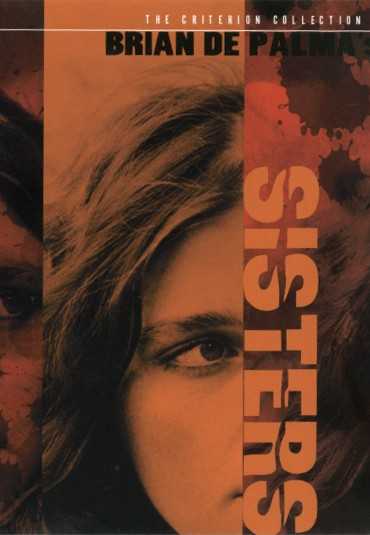 SISTERS
(1973)
SISTERS
(1973)Director: Brian DePalma
The Criterion Collection
 SISTERS
(1973)
SISTERS
(1973)Originally released by AIP in 1973, SISTERS is the first suspense thriller directed by Brian DePalma, and he would tread this familiar territory for the decade to come. Openly borrowing elements from Hitchcock (PSYCHO, REAR WINDOW, etc.), SISTERS mixes traditional shocks with inventive and macabre twists, and the film remains one of the director's finest.
Margot Kidder plays heavy-accented French Canadian model, Daniel Breton, who participates on a Candid Camera-like TV game show amply titled "Peeping Toms." She and her co-star, Philip (Lisle Wilson) end up at her Staten Island apartment, but they are tracked down by an obsessive ex-husband, Emil (PHANTOM OF THE PARADISE's Bill Finley). Emil appears to want to stand guard outside all night, but the clever Philip pretends like he's leaving, and Emil quickly takes off.
During their love making, the audience is revealed to Danielle's fleshy scar on the side of her hip, confirming that she was a Siamese twin who was separated. The next morning, Danielle appears to be arguing with her sister, Dominique. Philip runs out to pick up Danielle's prescription, as well as Birthday cake for the siblings. When he surprises the sheet-covered Danielle, it turns out that it's actually the maniacally disturbed Dominique and she opts to cut up Philip instead of the cake.
As the dying Philip squirms across the floor, reaching for the window, a women's lib columnist, Grace Collier (Jennifer Salt) witnesses the killing from the building across the way, and immediately phones the police who arrive in the form of the chauvinist Dolph Sweet (THE WANDERERS). Not being too keen on Grace's published police bashings, the detective deems her a crackpot and when they get to the scene of the crime, there is no evidence of any ghastly doings. Here, DePalma brilliantly utilizes the split screen technique that reveals Danielle and her husband removing all signs of the murder while Grace waits patiently for the police. But by the time they get to the apartment...
What follows is Grace's personal investigation of the murder, the discovery of the grim history of the twins, and some outrageous hallucinatory sequences. Capped with great character performances by Charles Durning as a determined private eye (instrumental in the film's closing shot) and Barnard Hughes as a friendly Life magazine editor, as well as an unforgettable screeching score by the great Bernard Herrmann, SISTERS is a monumental thriller. The acting is very memorable overall, and it's surprising that Jennifer Salt didn't enjoy a more lucrative career after this (we all know how well Margot Kidder did).
Unfortunately, Criterion's DVD is a disappointment. Prior to this, SISTERS was only available as a cropped, muddy transferred VHS tape from Warner. Criterion presents a new 1.85:1 anamorphically enhanced transfer, created from the original 35mm camera negative (still bearing the "American International" logo at the beginning). The colors are pretty stunning, and the film elements show very few blemishes, but there is an overall painful graininess in the picture. So bad is the grain, that I found myself cringing during the initial viewing. This grain (terrible in darker scenes, passable in brighter ones) is attributed to the low budget of the production as parts were reportedly shot in 16mm.
Although the sound is taken from a 35mm optical track, the audio is not much to brag about either, and does nothing to enhance Herrmann's incredible score. All in all, Criterion probably did the best that they could, but the transfer suffers due to the situation at hand. Still very watchable, I guess we'll just have to live with it (yes, throw away your old Warner video), and I still highly recommend owning this disc.
There is not much in the areas of extras, considering that this is part of "The Criterion Collection." The foldout booklet reprints an essay written by DePalma (in 1973) that focuses on his peculiar first meeting with Herrmann, as well as one written by Professor Bruce Kawin. The disc's supplements include a lengthy interview with DePalma about the film, hundreds of rare photos (many behind-the-scenes shots obviously taken from contact sheets), and a reproduction of the original AIP pressbook. Oddly, the very common theatrical trailer and TV spots are not present. (George R. Reis)